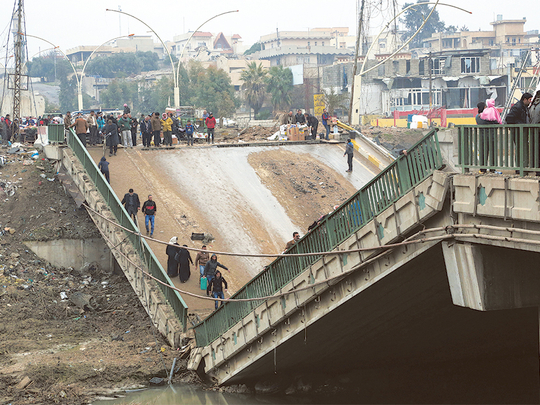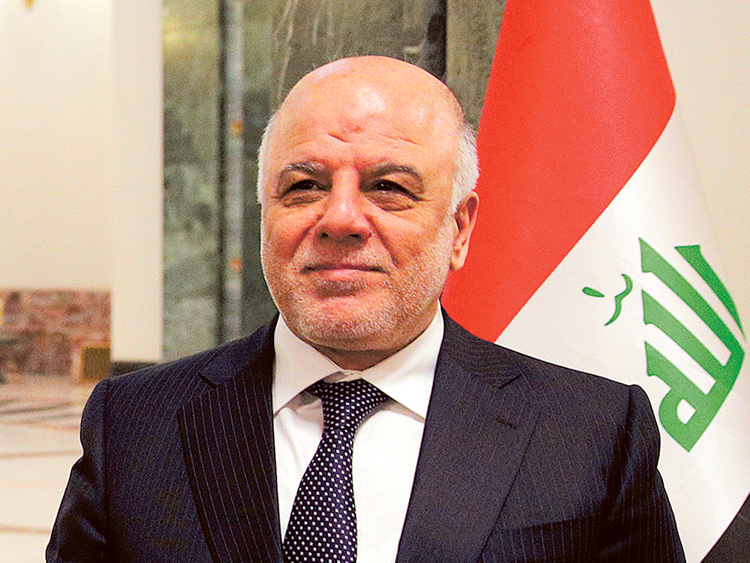
Beirut: Speaking at a dialogue conference on Saturday, organised by parliament, Prime Minister Haidar Al Abadi outlined a seven-point roadmap Iraq after the eventual defeat of Daesh.
Al Abadi assured Iraq’s neighbours that the Iraqi Army will never be used to threaten them, saying: “Fear not from Iraq or for Iraq.”
He promised to restore life to liberated cities like Ramadi, and ones that are close to liberation, like Mosul in northern Iraq, which has witnessed fierce battles between government troops and Daesh militants since last October. Additionally, Al Abadi pledged to uphold reconciliation and peaceful co-existence among the country’s numerous ethnic and religious communities, but warned that the fight against Daesh will not be the last for Iraq, expecting other radical terrorist organisations to emerge, feeding off years of war, militia-rule, and occupation.
Al Abadi also pledged to place arms exclusively in the hands of the state, saying that non-state players and militias will not be tolerated.
His pledge, however, directly contradicts his endorsement of a controversial parliamentary decree issued in November, which gave powerful Shiite militias the legal right to carry arms.
The Hashed Al Shaabi (Popular Mobilisation Committees) are estimated to have between 100-120,000 fighters, bankrolled by Iran.
Similar to the Lebanese Shiite militant group Hezbollah, these militias essentially function as a state-within-a-state.
Iraq’s Sunni population has decried the decision.
Meanwhile, attacks in Baghdad have increased. In December at least 28 people were killed in a double suicide blast claimed by Daesh.
The terrorist group often carries out suicide bombs in the capital when they are undergoing heavy losses elsewhere.
Now the group has lost control of nearly all of east Mosul, as government forces push ahead with the offensive to liberate Daesh’s last major stronghold in the country.
On Sunday, Iraqi security forces killed more than 125 Daesh militiamen in retaliation, all in eastern Mosul, and another 40 were wiped out as the Iraqi Army advanced toward the east bank of the Tigris River.
Over the weekend, government troops re-took Mosul University, where Daesh used its labs to build explosives, weapons, and chemical devices.
Observers would agree with Al Abadi’s assessment that the threat of Islamist militancy will not disappear overnight and also point to the extremely fertile environment for terrorist groups to flourish in both Syria and Iraq—both countries tainted by war, foreign intervention and rampant corruption.
The societies in which Daesh flourished were suffering from long-term plagues like military rule, sectarianism, lack of social mobility, joblessness, unequal distribution of wealth and mediocre education.
Those who joined Daesh did so not only because of the money; they did it because their former societies had fallen apart and failed them, leaving them to rot in poverty and ignorance.












